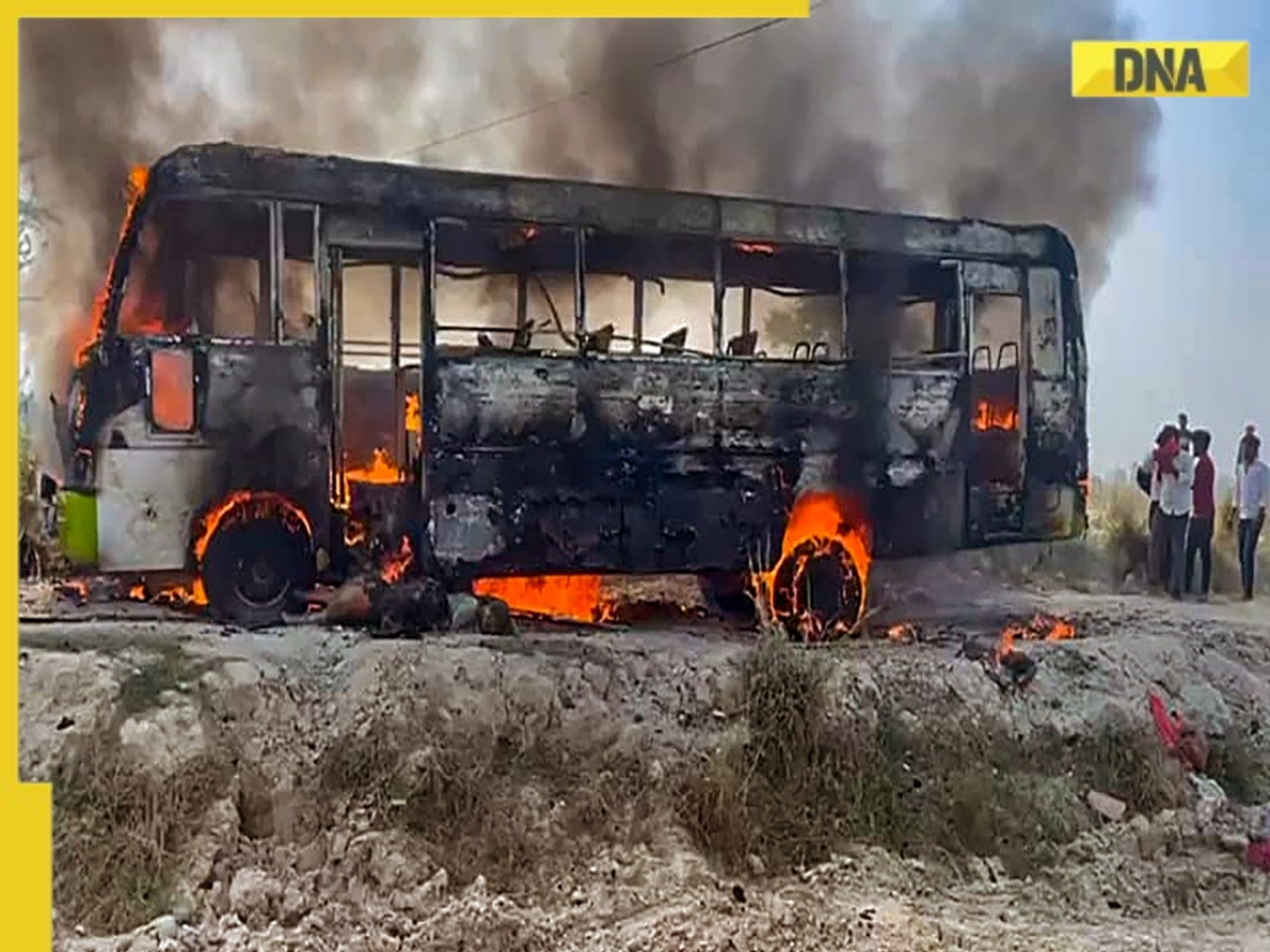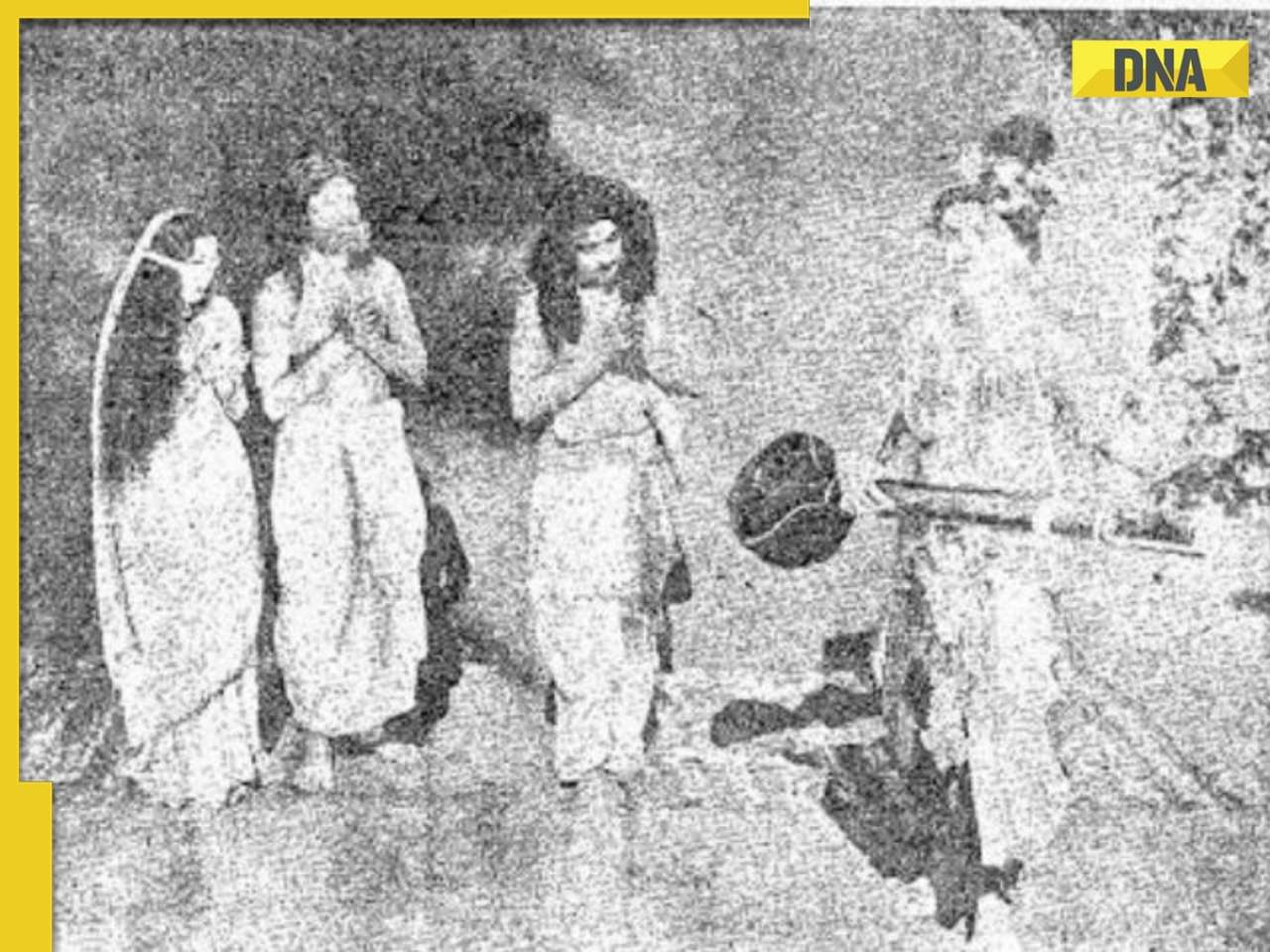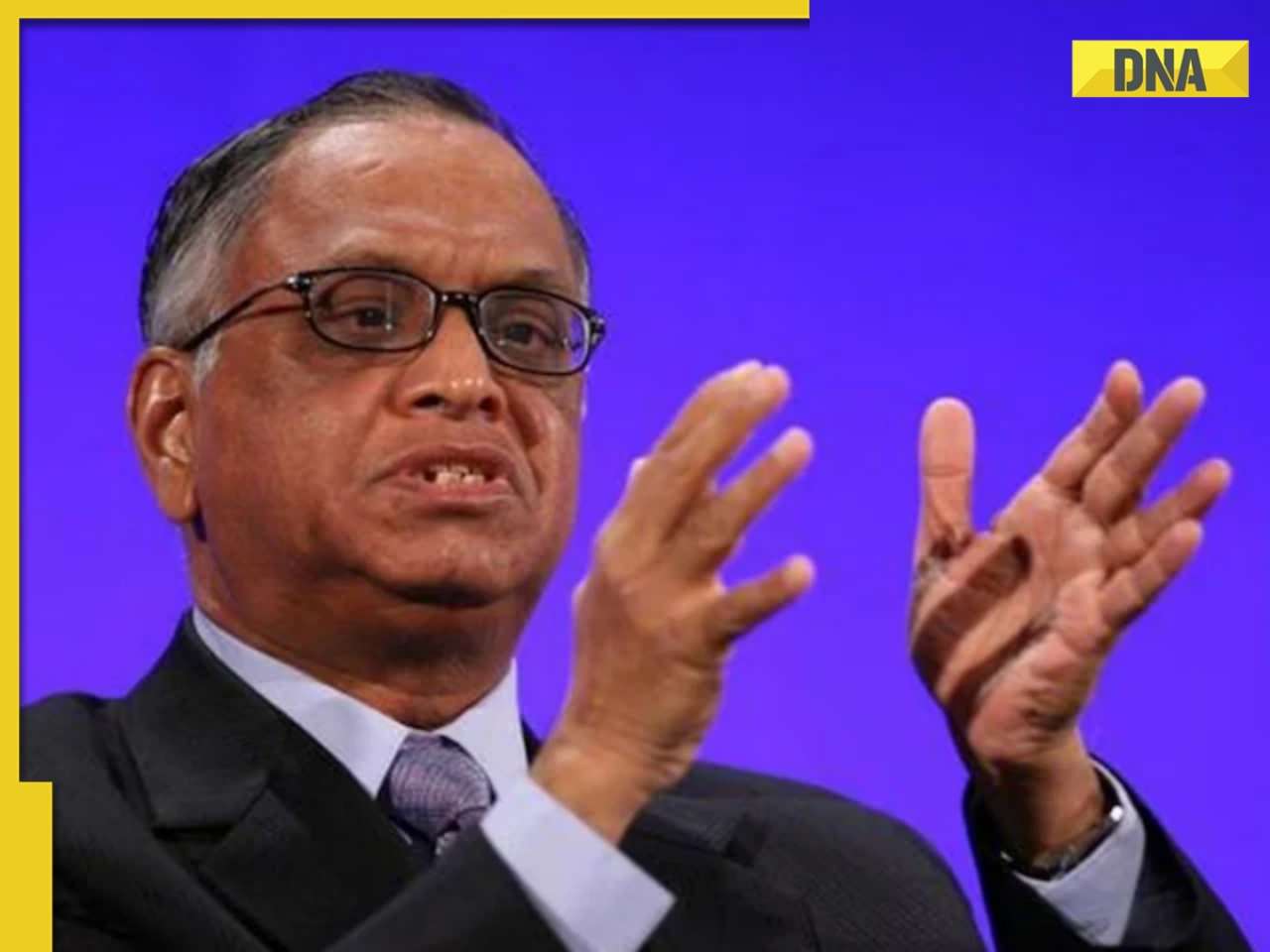In a country where theatres prefer to screen 1980s Bollywood hits over local cinema, and filmmaking is still tainted with stigma.
During the shoot of her first feature film,
Three Dots, Afghan filmmaker Roya Saadat, 28, faced an unusual problem.
“My lead actress’s husband threatened to divorce her, since he had problems with her talking with her on-screen husband,” says the director. The crisis eventually blew over, but for Saadat, who was a university student at Herat at the time, it was part of her “self-taught” understanding of cinema.
“You have to be determined to make the film, and because everything else is lacking, you must make up for that in willpower.” Saadat is no stranger to crises. Three Dots, which tells the story of a young woman forced into the drug trade to fend for herself and her children, was shot in harsh conditions in the desert around the Afghan-Iran border.
Her new feature,
Playing The Taar, deals with a young girl from the Turkeman-Afghan community, who is trapped in a loveless engagement. “During the shooting, men from the community told me I had to stop the film since it shows their traditions in a bad way. I told them, I am a woman. I worry for women everywhere. Their stories don’t belong to you.”
With a new generation of Afghans finding their voice in cinema, a small number of women are also picking up the camera. And unsurprisingly, they are turning towards ‘invisible’ topics.
“Men think a lot about the market and business,” says Sediqa Rezaei, 30, director. “Women think about things closer to the heart.”
Rezaei grew up in Iran and moved to Kabul five years ago to help rebuild her country. She stumbled into documentaries rather reluctantly after a brief stint in a UN agency, but found they were the “best way to create conversations about issues.”
But in a country where theatres prefer to screen 1980s Bollywood hits over local cinema, and filmmaking is still tainted with stigma, it is “hard enough to be a filmmaker, but even harder to be a woman trying to make movies,” says Rezaei.
Despite coming from a liberal family, and being married to a filmmaker, Rezaei faced ostracism from her extended family. “Besides, men can concentrate just on their work, but it is harder for a woman to look after work and the home.” During the shoot of her last film, her infant son was only a few weeks old.
“I would take him to the location and feed him between shots. For me, there is no division in being a mother, director and woman — they all link to each other.” Her documentary, Bricks And Dreams, is about a boy who works as a labourer in a brick kiln, showing his friendships, his occasional visits to his family and his dreams for a better life.
“As a mother, I will resist anyone hurting my child. This film has the same idea — to fight for the children of Afghanistan,” says Rezaei. “When I started making my first film, there were no women even in journalism. Now there are women making documentaries even in small towns. It is easier, but still not ‘easy’,” says Saadat.
For both women, the appeal of cinema is to show the ‘real’ Afghanistan, beyond its image of constant war and violence. “I don’t accept this idea the world has of my country,” says Rezaei. “Afghanistan has a lot of beauty that I want to show in my films. It is a terrible beauty, but one we can make better in the future.”
Saadat’s TV show, The Secrets Of This House, was touted as the first series to focus on the lives of an Afghan family with its problems and small joys. While it became popular, Saadat often found it pitted against the mass appeal of Indian soaps, with their domestic dramas and their elaborate plot twists. “They show working women as vamps, and say that decent women should stay at home,” she shrugs in disbelief. “For Afghan men, that is the perfect world.”
Saadat is currently working on a new show based on a group of college students and their lives. Recently, she got a call from someone she only refers to as ‘an important man’. “He said that I take money from foreigners and show Afghan women in a bad way, and that I must stop.” But Saadat insists such incidents do not make her feel unsafe. “Cinema is the best way to voice the stories of my people; of all people,” she says. “I cannot think about these things when I work.”
![submenu-img]() Meet actress who is set to work in India's most expensive film, started career with superhit TV show, then gave..
Meet actress who is set to work in India's most expensive film, started career with superhit TV show, then gave..![submenu-img]() Hansal Mehta reacts to Sahara Group calling his series Scam 2010 The Subrata Roy Saga 'abusive act, cheap publicity'
Hansal Mehta reacts to Sahara Group calling his series Scam 2010 The Subrata Roy Saga 'abusive act, cheap publicity'![submenu-img]() Meet actor, who was once Aamir, Shah Rukh's rival, never became superstar, worked as hotel manager, is now...
Meet actor, who was once Aamir, Shah Rukh's rival, never became superstar, worked as hotel manager, is now...![submenu-img]() 9 killed, 24 injured as bus catches fire in Haryana's Nuh
9 killed, 24 injured as bus catches fire in Haryana's Nuh![submenu-img]() Meet actress who started career with Ranveer, Deepika, is married to man with Rs 53,800 crore net worth, husband is..
Meet actress who started career with Ranveer, Deepika, is married to man with Rs 53,800 crore net worth, husband is..![submenu-img]() Meet IIT graduates, three friends who were featured in Forbes 30 Under 30 Asia list, built AI startup, now…
Meet IIT graduates, three friends who were featured in Forbes 30 Under 30 Asia list, built AI startup, now…![submenu-img]() Meet woman who cracked UPSC in fourth attempt to become IAS officer, secured AIR...
Meet woman who cracked UPSC in fourth attempt to become IAS officer, secured AIR...![submenu-img]() Meet IIT JEE 2024 all-India girls topper who scored 100 percentile; her rank is…
Meet IIT JEE 2024 all-India girls topper who scored 100 percentile; her rank is…![submenu-img]() Meet PhD wife of IIT graduate hired at Rs 100 crore salary package, was fired within a year, he is now…
Meet PhD wife of IIT graduate hired at Rs 100 crore salary package, was fired within a year, he is now…![submenu-img]() Meet woman not from IIT, IIM or NIT, cracked UPSC exam in first attempt with AIR...
Meet woman not from IIT, IIM or NIT, cracked UPSC exam in first attempt with AIR...![submenu-img]() DNA Verified: Is CAA an anti-Muslim law? Centre terms news report as 'misleading'
DNA Verified: Is CAA an anti-Muslim law? Centre terms news report as 'misleading'![submenu-img]() DNA Verified: Lok Sabha Elections 2024 to be held on April 19? Know truth behind viral message
DNA Verified: Lok Sabha Elections 2024 to be held on April 19? Know truth behind viral message![submenu-img]() DNA Verified: Modi govt giving students free laptops under 'One Student One Laptop' scheme? Know truth here
DNA Verified: Modi govt giving students free laptops under 'One Student One Laptop' scheme? Know truth here![submenu-img]() DNA Verified: Shah Rukh Khan denies reports of his role in release of India's naval officers from Qatar
DNA Verified: Shah Rukh Khan denies reports of his role in release of India's naval officers from Qatar![submenu-img]() DNA Verified: Is govt providing Rs 1.6 lakh benefit to girls under PM Ladli Laxmi Yojana? Know truth
DNA Verified: Is govt providing Rs 1.6 lakh benefit to girls under PM Ladli Laxmi Yojana? Know truth![submenu-img]() Sunanda Sharma exudes royalty as she debuts at Cannes Film Festival in anarkali, calls it ‘Punjabi community's victory’
Sunanda Sharma exudes royalty as she debuts at Cannes Film Festival in anarkali, calls it ‘Punjabi community's victory’![submenu-img]() Aishwarya Rai walks Cannes red carpet in bizarre gown made of confetti, fans say 'is this the Met Gala'
Aishwarya Rai walks Cannes red carpet in bizarre gown made of confetti, fans say 'is this the Met Gala'![submenu-img]() In pics: Sobhita Dhulipala looks 'stunning hot' in plum cordelia jumpsuit at Cannes Film Festival, fans call her 'queen'
In pics: Sobhita Dhulipala looks 'stunning hot' in plum cordelia jumpsuit at Cannes Film Festival, fans call her 'queen'![submenu-img]() Udaariyaan takes 15-year leap, these actors join Sargun Mehta, Ravi Dubey-produced show
Udaariyaan takes 15-year leap, these actors join Sargun Mehta, Ravi Dubey-produced show![submenu-img]() In pics: Urvashi Rautela sizzles in red strapless gown at Cannes Film Festival, fans call her 'Disney princess'
In pics: Urvashi Rautela sizzles in red strapless gown at Cannes Film Festival, fans call her 'Disney princess'![submenu-img]() Haryana Political Crisis: Will 3 independent MLAs support withdrawal impact the present Nayab Saini led-BJP government?
Haryana Political Crisis: Will 3 independent MLAs support withdrawal impact the present Nayab Saini led-BJP government?![submenu-img]() DNA Explainer: Why Harvey Weinstein's rape conviction was overturned, will beleaguered Hollywood mogul get out of jail?
DNA Explainer: Why Harvey Weinstein's rape conviction was overturned, will beleaguered Hollywood mogul get out of jail?![submenu-img]() What is inheritance tax?
What is inheritance tax?![submenu-img]() DNA Explainer: What is cloud seeding which is blamed for wreaking havoc in Dubai?
DNA Explainer: What is cloud seeding which is blamed for wreaking havoc in Dubai?![submenu-img]() DNA Explainer: What is Israel's Arrow-3 defence system used to intercept Iran's missile attack?
DNA Explainer: What is Israel's Arrow-3 defence system used to intercept Iran's missile attack?![submenu-img]() Meet actress who is set to work in India's most expensive film, started career with superhit TV show, then gave..
Meet actress who is set to work in India's most expensive film, started career with superhit TV show, then gave..![submenu-img]() Hansal Mehta reacts to Sahara Group calling his series Scam 2010 The Subrata Roy Saga 'abusive act, cheap publicity'
Hansal Mehta reacts to Sahara Group calling his series Scam 2010 The Subrata Roy Saga 'abusive act, cheap publicity'![submenu-img]() Meet actor, who was once Aamir, Shah Rukh's rival, never became superstar, worked as hotel manager, is now...
Meet actor, who was once Aamir, Shah Rukh's rival, never became superstar, worked as hotel manager, is now...![submenu-img]() Meet actress who started career with Ranveer, Deepika, is married to man with Rs 53,800 crore net worth, husband is..
Meet actress who started career with Ranveer, Deepika, is married to man with Rs 53,800 crore net worth, husband is..![submenu-img]() This film's budget was less than an iPhone, smashed box office records; became first industry hit, earned...
This film's budget was less than an iPhone, smashed box office records; became first industry hit, earned... ![submenu-img]() Do you know which God Parsis worship? Find out here
Do you know which God Parsis worship? Find out here![submenu-img]() This white marble structure in Agra, competing with Taj Mahal, took 104 years to complete
This white marble structure in Agra, competing with Taj Mahal, took 104 years to complete![submenu-img]() 'If only we are smart enough...': Narayana Murthy was asked how AI will hurt job prospects
'If only we are smart enough...': Narayana Murthy was asked how AI will hurt job prospects![submenu-img]() Viral video: Gujarat man converts Honda Civic into 'Lamborghini' for just Rs 12.5 lakh, watch
Viral video: Gujarat man converts Honda Civic into 'Lamborghini' for just Rs 12.5 lakh, watch![submenu-img]() Man who disappeared 26 years ago found in neighbour`s cellar, just 100 metres from home
Man who disappeared 26 years ago found in neighbour`s cellar, just 100 metres from home























































)
)
)
)
)
)